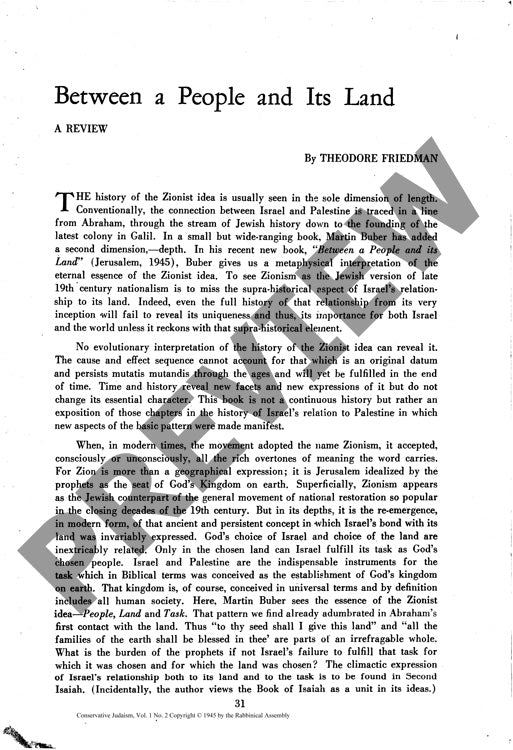Between a People and Its Land a Review
Couldn't load pickup availability
Martin Buber's metaphysical vision of Zionism challenges us to move beyond conventional historical frameworks and grasp a deeper truth: the relationship between the Jewish people and Palestine transcends modern nationalism. In "Between a People and its Land" (1945), Buber articulates Zionism as a "supra-historical" concept built on three inseparable elements: People, Land, and Task. Through textual analysis and philosophical interpretation, this triadic pattern emerges consistently across Jewish intellectual history - from Biblical and Talmudic sources through medieval philosophers like Rabbi Judah Loew of Prague, into Chassidic thought and modern Zionist thinkers including Herzl, Achad Ha'am, Chief Rabbi Kook, and A.D. Gordon. The analysis reveals how Buber positions Israel's restoration to Zion as fundamentally linked to universal redemption and the establishment of God's kingdom on earth. Despite varying historical contexts, diverse Jewish thinkers across centuries have maintained this cosmic vision. Buber's work offers profound insights into Jewish thought that challenge purely rationalistic interpretations, presenting Zionism as an eternal drama with eschatological significance rather than merely a modern nationalist movement.

More Information
-
Physical Description
-
Publication Information
Published 1945
ISBN
-
Publication Credits
Theodore Friedman

